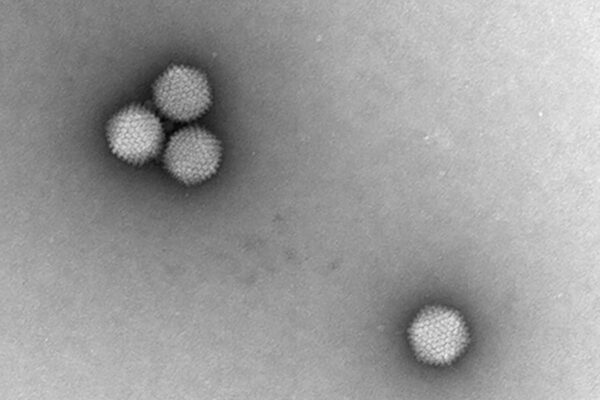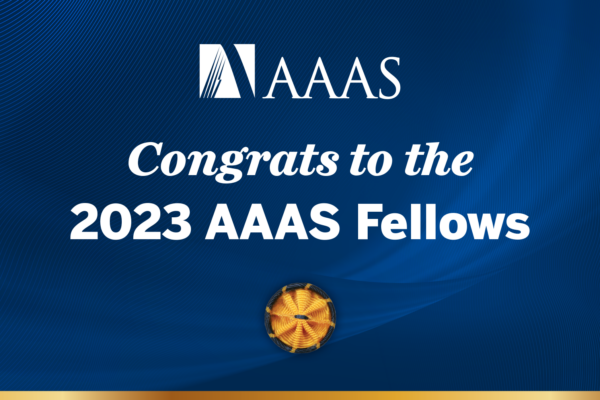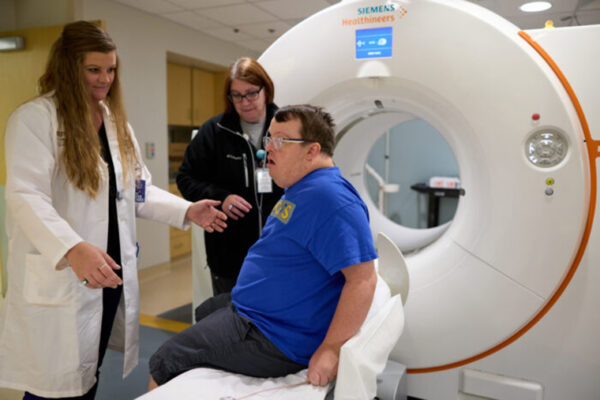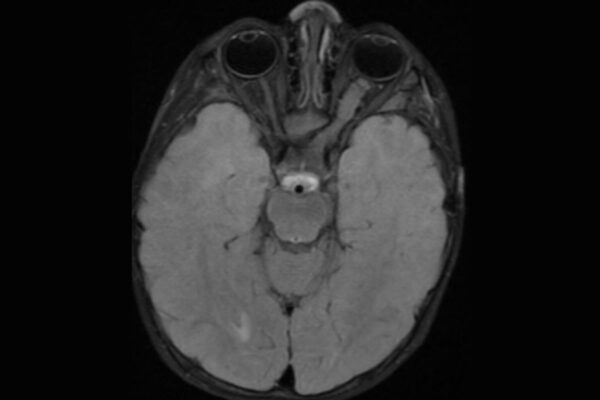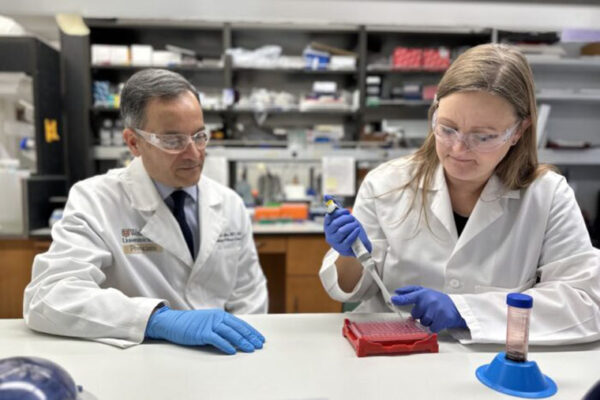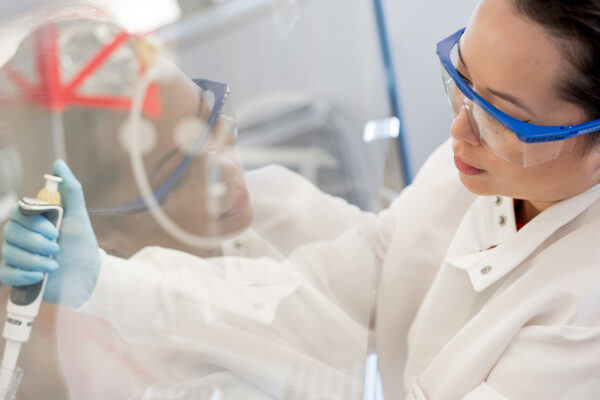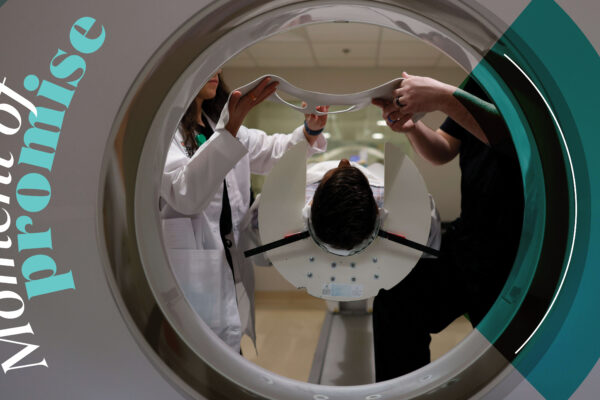Mahmoud honored by American Heart Association
Zainab Mahmoud, MD, an instructor in medicine at Washington University School of Medicine in St. Louis, has been awarded the Dr. Nanette K. Wenger Research Goes Red Award from the American Heart Association.
International trials underway for childhood malnutrition therapy developed at WashU
A microbiome-directed food developed at Washington University School of Medicine in St. Louis is now being evaluated in major randomized controlled trials. The food is designed to nurture beneficial gut microbes and treat childhood malnutrition.
$6.2 million to help develop gene therapy for HIV
Researchers at Washington University School of Medicine in St. Louis have received a $6.2 million grant from the National Institutes of Health (NIH) to develop a gene therapy that would modify the immune system’s B cells to spur them to produce broadly neutralizing antibodies against HIV.
Nine WashU faculty elected to AAAS
Nine faculty members at Washington University in St. Louis are among the 502 new fellows selected by the American Association for the Advancement of Science, one of the most distinct honors in the scientific community.
Alzheimer’s disease progresses faster in people with Down syndrome
A new study by researchers at Washington University School of Medicine in St. Louis shows that Alzheimer’s disease both starts earlier and moves faster in people with Down syndrome. The finding may have important implications for the treatment and care of this vulnerable group of patients.
Epilepsy drug prevents brain tumors in mice with NF1
Researchers at Washington University School of Medicine have discovered that an FDA-approved epilepsy drug can prevent or slow the growth of NF1-linked optic gliomas in mice, laying the groundwork for a clinical trial.
Apte honored with macular degeneration award
Rajendra S. Apte, MD, PhD, the Paul A. Cibis Distinguished Professor and vice chair of innovation and translation in the John F. Hardesty, MD, Department of Ophthalmology & Visual Sciences at Washington University School of Medicine in St. Louis, has received the 2024 Roger H. Johnson Award.
Thompson named director of pediatric neurosurgery
Eric Thompson, MD, a pediatric neurosurgeon noted for his expertise in caring for children with complex neurological conditions, particularly brain and spinal tumors, has been named director of the Division of Pediatric Neurosurgery at Washington University School of Medicine in St. Louis and neurosurgeon-in-chief at St. Louis Children’s Hospital.
Women deserve better health care. Engineers can help.
Pressure. Contraction. Pushing. Rupture. For many, these words point to the experience of labor and childbirth. For Michelle Oyen, something else also comes to mind. “These are all very clearly engineering words that have to do with physical forces,” says Oyen, associate professor of biomedical engineering in the McKelvey School of Engineering. “We’ve been treating […]
Moment of promise
Washington University is known the world over for being a leader in neuroscience research. And the university underscored its commitment to the neurosciences by building an 11-story hub on the Medical Campus that enables researchers to work more collaboratively and creatively. The goal: to accelerate the translation of science into treatments to help those living with neurodegenerative diseases.
View More Stories


